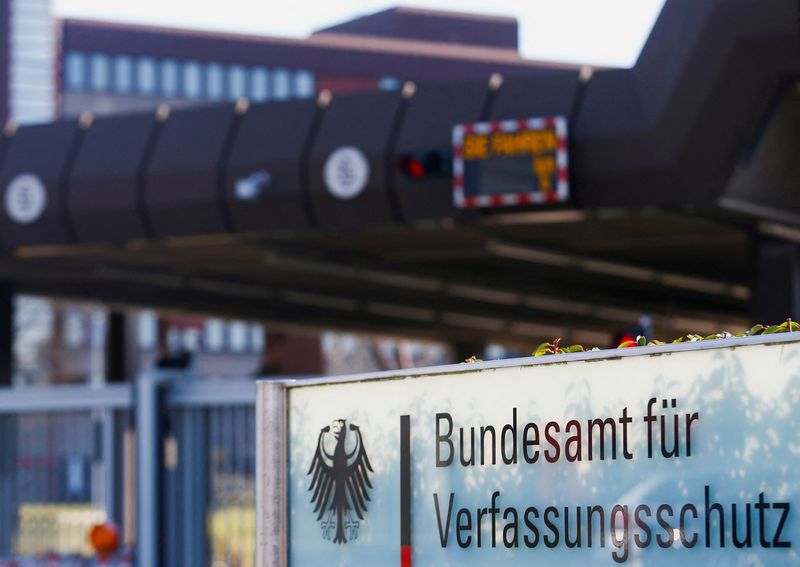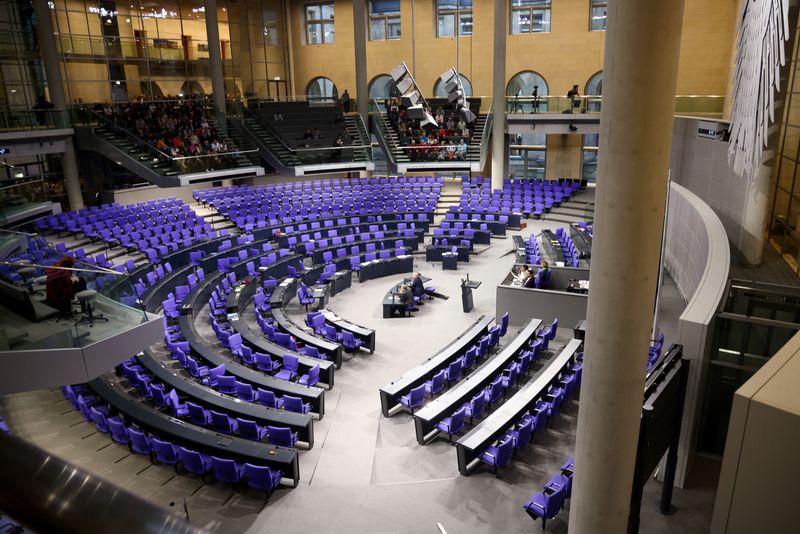By Miranda Murray and Sarah Marsh
BERLIN (Reuters) - Germany's domestic intelligence agency (BfV) has set up a task force to head off any foreign state attempts to influence the upcoming federal election after last month warning of increased Russian-sponsored espionage and sabotage.
It said possible attempts at disinformation, cyberattack, spying or sabotage could be made ahead of the snap vote set for Feb. 23 after the collapse earlier this month of Chancellor Olaf Scholz's fractious three-way coalition.
"Against the backdrop of the Russian war of aggression against Ukraine, Russia probably has the greatest and most obvious interest in influencing the election in its own favour," the BfV said in a statement, noting it was also keeping an eye on other actors.
Such actors could seek to actively support individual candidates or parties or discredit other candidates and parties or the democratic process itself, seizing on opportunities, the BfV said.
Germany is Ukraine's second biggest financial and military backer, seeking to help it fend off Russia's full-scale invasion more than 2-1/2 years ago.
That has resulted in a sharp rise in "aggressive behaviour" by the Kremlin towards Germany, as to other Ukraine allies, the head of Germany's domestic intelligence agency said last month.
Parcels that exploded at logistics depots in Europe including in Germany, for example, were part of a test run for a Russian plot to trigger explosions on cargo flights to the United States, according to Western security officials.
Acts of sabotage could, in addition to causing physical damage, also have a psychological impact on voters as well as on political decision makers, the BfV said.
The agency also warned against disinformation, given that Russia had been "offensively increasing" the distribution of pro-Russian and anti-western narratives, hoping to divide German society and reduce support for Ukraine.
Cyberattacks, in particular hack-and-leak operations, were a further danger, as well as the use of artificial intelligence to produce deepfake videos to dupe voters, it said.
Support for Russia-friendly parties - notably the far-right Alternative for Germany (AfD) and the far-left Sahra Wagenknecht Aliance - has been on the rise in recent months, with both parties faring well in elections in eastern Germany in September.

In April, a senior member of the AfD was accused of receiving money from a pro-Russian media site, allegations he denied.
A senior Romanian election official said on Friday Romania could rerun its presidential election first round after an independent far-right politician came from nowhere to win a shock victory that caused suspicions of interference.
